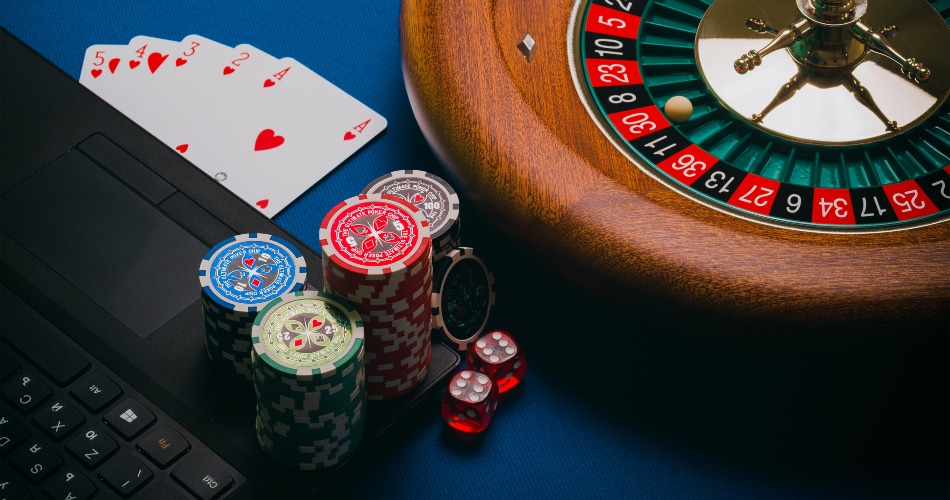
The Betting and Gaming Council (BGC) has announced Safer Gambling Week 2021.
In an announcement post on the BGC website, the organisation revealed that this year’s event will run between November 1st and 7th, and will see the BGC, the Bingo Association, and bacta (British Amusement Catering Trade Association) join forces to drive up standards within the industry and promote safer gambling.
The annual campaign first launched in 2017 as Responsible Gambling Week, and this year’s event will see brick-and-mortar gambling venues and websites display a slew of safer gambling messages as part of a move to spark “a nationwide conversation on how to bet responsibly”.
According to the BGC, last year’s event, despite taking place during the pandemic when most brick-and-mortar venues were shut, was a huge success as social media impressions for the campaign increased by 19% from 2019’s campaign.
The BGC also notes that the number of sessions on the Safer Gambling Week website was 18% higher than those from the 2019 campaign, and that gambling operators reported an increase in the number of customers using safer gambling tools, like deposit limits and self-exclusion.
During this year’s event, the gambling industry will come together to encourage staff, customers, and the general public to raise awareness of and talk about safer gambling.
Michael Dugher, the BGC’s Chief Executive, said in a statement: “As the standards body representing the regulated betting and gaming industry, the BGC is delighted to support Safer Gambling Week 2021.
“Last year’s event was a huge success despite the pandemic and, with the prospect of betting shops and casinos being open when this year’s takes place, I’m sure Safer Gambling Week 2021 will be even better.”
He continued: “Our members already demonstrate their commitment to safer gambling through things like increased funding for research, education and treatment, the whistle to whistle ban on TV betting commercials during live sport and strict ID and age verification checks.
“During the pandemic, we have also seen the number of safer gambling messages on betting websites more than double, while direct interventions where customers have been spending more time and money betting than before Covid have increased by 25 per cent.
“Safer Gambling Week is a great opportunity to highlight this fantastic work – and emphasises the difference between the regulated industry and the unlicensed and illegal online black market, which has none of the safeguards which are commonplace among our members.”
Miles Baron, the Chief Executive of the Bingo Association, said: “Safer Gambling Week is an important part of the bingo industry’s commitment to social responsibility and provides a useful focal point for highlighting activity and support that is available throughout the year. As venue-based businesses, the sector recognises the important opportunity we have to promote safer gambling messages and engage directly with customers.”
John White, the Chief Executive for bacta, added: “Safer Gambling Week once again allows the industry to showcase its year-long commitment to safer gambling. It also brings customer focus to the tools that are available to them if they in any way feel their gambling is becoming problematic.
“Those tools continue to grow as we learn more about safer gambling and form part of our ambition to cement social responsibility at the heart of our offer to the consumer.”
The BGC’s announcement comes as British think-tank the Centre of Social Justice (CSJ) has called for a ban on all gambling advertising and marketing in its Not A Game report.
The CSJ released the report this week, claiming that a ban on gambling advertising and marketing would better protect gamers and would have no effect on the gambling industry since operators claim advertising has no effect on customers’ gambling habits.
As reported by FocusGN, the think-tank’s report also called for a series of new rules on the gambling industry, including a mandatory levy and additional affordability checks with the UK Gambling Commission acting as an intermediary between operators and customers to ensure said checks are done.
The CSJ report referenced a report from the Advisory Board for Safer Gambling, which highlighted how the National Health Institute for Health Research has conducted only one study on gambling since 1991, but it’s conducted 15 studies on alcohol in the same period.
The think-tank says in its report that gambling is “not the safe, harmless leisure activity that the gambling industry would have us believe”, and it has said that the impact and extent of gambling-related harm must be accurately identified and assessed.
It states: “Our research suggests that more must be done for this to happen; from understanding gambling-related harm itself to how it affects the families, friends and communities of disordered gamblers.”
The suggestions echo those made by the All-Parliamentary Group on Gambling Related Harm (GRH APPG) who have also called for a ban on gambling advertisements as well as an end to gambling sports sponsorships.
GRH APPG Chair Carolyn Harris said: “Today, our gambling legislation is hopelessly and dangerously out of date. We believe that tackling this issue must involve a whole system approach to reform, from the use of tools already available such as the gambling levy, doing more in prevention and recovery through to imposing advertising bans.”
The release of the CSJ report comes amidst the UK Government’s review of the Gambling Act 2005, under which the gambling industry may face several changes. It also comes after a group of 60 MPs and advocates called for a ban on gambling advertisements during this year’s UEFA European Football Championship.